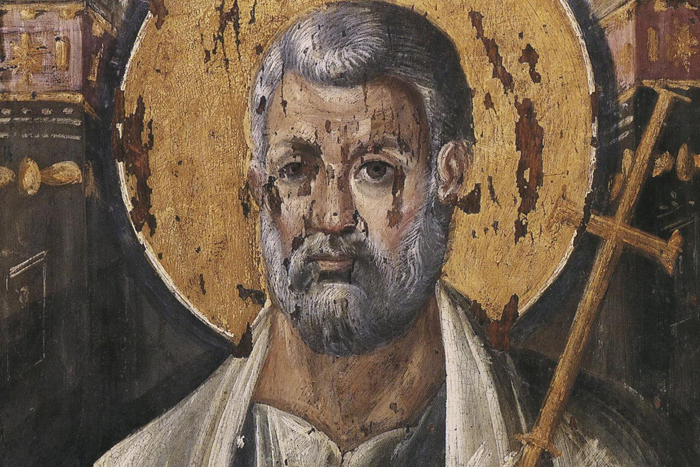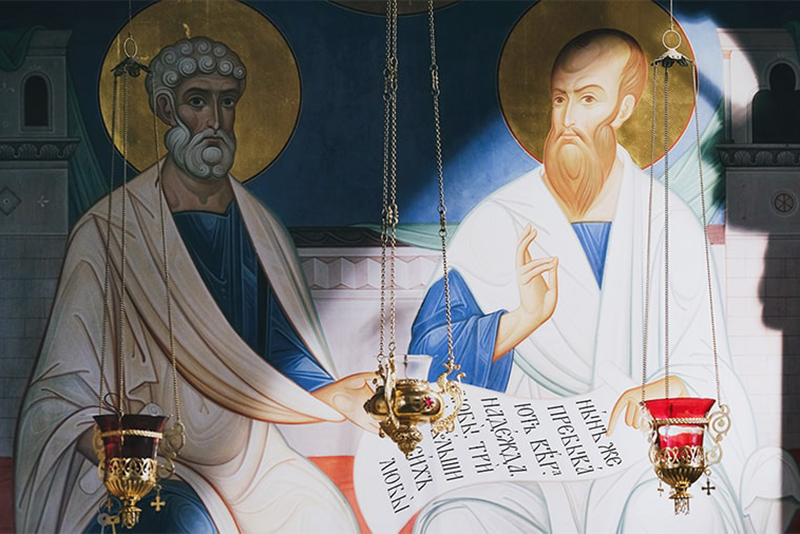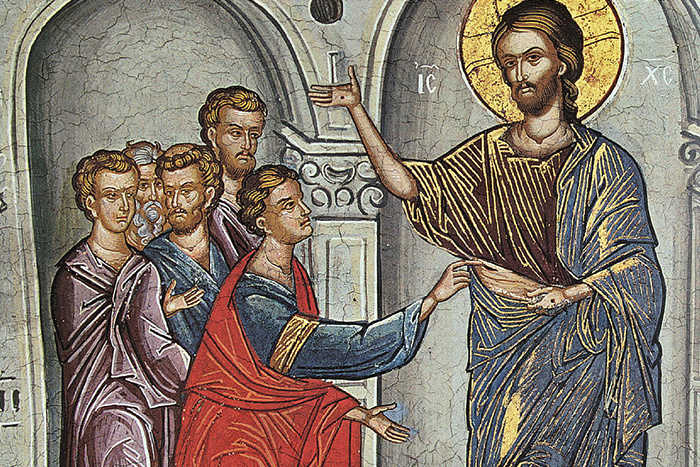
According to the Orthodox tradition, the apostle Peter preached and suffered martyrdom in Rome, and the two apostles, Peter and Paul, were the founders of the Roman Church. Numerous Holy Fathers and ancient Church historians have written about this, and the tradition of the Church testifies to it. Nevertheless, how do we know about Peter’s preaching and death in Rome? Why do many secular as well as Christian historians, including some Orthodox scholars, deny the fact that Peter stayed in the capital of the Roman Empire? Let’s take a closer look at this problem.
The Church in Babylon. The New Testament keeps silent about Peter’s stay in the Eternal City. Simon is the main character in the book of Acts from chapter one to chapter twelve. However, since Cephas’s release from prison and his forced departure from the city, Luke cuts off his narrative and begins his account of the apostle Paul’s conversion to Christ and his ministry (cf. the Book of Acts). Paul mentions Simon several times in his epistles, but never says a word about Cephas’s stay in Rome. Neither do the epistles of the First Apostle Peter himself contain any clear reference to his life in Rome, except for one fairly arcane passage, The church that is at Babylon, elected together with you, saluteth you; and so doth Marcus my son (1 Peter 5:13).
Did They Mean Rome When They Said Babylon? Which Babylon are we talking about? Most of the Holy Fathers and commentators of Scripture believe that Babylon is the metaphor of Rome, from where Peter wrote his message, and that he disguised the name of the city for fear of giving his whereabouts to Roman officials. The metaphor was clear to the Christians of that time: Just as there had been a great mixing of languages in Babylon, so also in Rome there lived people from many nations and a wide variety of languages could be heard. Just as the Jews were in Babylonian captivity for about seventy years, the Roman rule over Palestine had already lasted more than one hundred years since the conquest of Judea by Pompey in 63 B.C. Likewise, in spiritual terms, Rome was often identified with Babylon as a city of sin: suffice it to recall the Harlot of Babylon sitting on seven hills, described by the apostle John (see Revelation 17).
Babylon of Egypt? However, some researchers are not inclined to see Rome as Babylon. Could it have been the original Babylon? It is quite possible, especially since Josephus writes that under Emperor Caligula (37 – 41) there were many Jews living in Babylon. Cephas could have preached to them. Present-day scientists also put forward the version about Peter’s preaching in Babylon based on the fact that Simon mentions his constant companion Marcus, the Apostle who founded the Church in Alexandria. However, it is odd to think that Peter preached in a remote fortress, which the Babylon of Egypt was at that time, while his disciple founded the Church in the largest city of that time.
The Muratorian Canon. The Muratorian Canon, discovered in the 18th century, is an intriguing and quite compelling argument that challenges the credibility of the First Epistle of Peter. It is considered the oldest list of books of the New Testament canon in the ancient Church of Rome. The Canon does not mention the First Epistle of Peter, which is very surprising if we reckon that the epistle was indeed written in Rome itself. However, Peter’s First Epistle has always been considered canonical, and the Muratorian Canon is not the perfect standard, as it included the apocryphal Apocalypse of Peter.
Paul’s Epistles. The other major challenge to Cephas’s residence in Rome are the Pauline Epistles. In his pastoral epistles, traditionally believed to have been written in Rome, Paul makes no mention of Peter. Nor does he mention Cephas in his Epistle to the Romans, in which he greets by name all the Christians of Rome whom he knew. Paul says in this epistle, Yea, so have I strived to preach the gospel, not where Christ was named, lest I should build upon another man’s foundation (Romans 15:20). Why then does Paul write his Epistle to Rome, given that another apostle, Peter himself, carries out his ministry there already? There are several possible answers to this question. We do not know exactly when Cephas visited Rome. Jerome writes that he preached there continuously for 25 years; other Fathers tend to think that Simon arrived there shortly before his execution. This is why Paul did not mention his fellow apostle, for he might not have been there yet. The statement of the Fathers that Peter founded the church of Rome should not be understood in the sense of the conversion of the first disciples in that city but that he and Paul preached there and shed their blood, establishing Christians in faith, and setting an example of following Christ.
Thus, we can conclude that there are many valid and sound arguments which make us question Peter’s residence in Rome. These arguments are based on the authority of Holy Scripture. Protestant researchers are heavily invested in this issue; their interest is not purely scientific, but rather religiously motivated by their controversy with Catholic scholars, for whom Cephas’s residence in Rome is an integral part of the identity of the Catholic Church. Which side of the controversy should the Orthodox take? While we do not deny the findings and sensible arguments of the Protestants, we ought to keep in mind the affirmative arguments, such as our own Tradition, and the numerous testimonies of the Holy Fathers, who unanimously testify to Peter’s preaching and death in Rome. The Scripture cannot be the sole source of our knowledge about the life and ministry of the apostles, of whose exploits and death for Christ we learn from the treasury of the Apostolic Tradition. Therefore, only a parallel study and comparison of Scripture and Tradition can give us a more or less convincing insight into the reality of the apostle Peter’s preaching in Rome.



